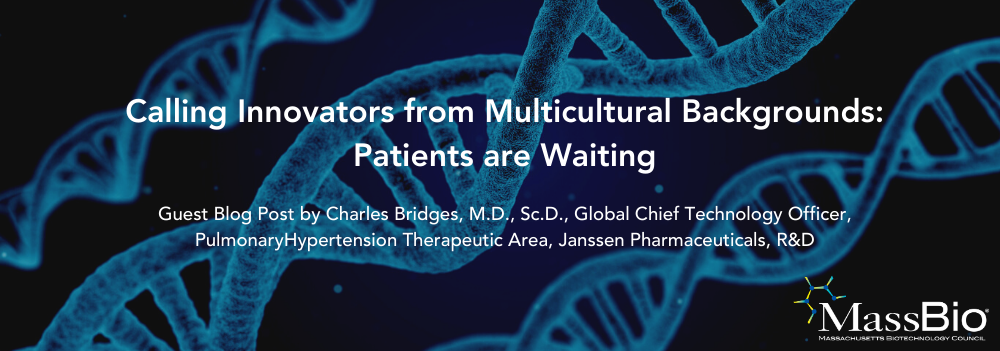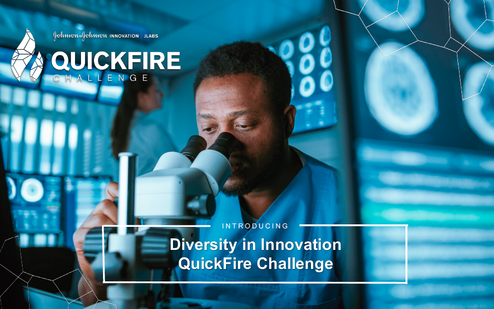
A driving force throughout my career – as a surgeon, scientist, professor, and business leader – is the potential to advance the standard of care through early-stage science.
However, something that keeps me up at night is lost potential – the huge portion of the population that is not adequately represented within STEM. As Dr. Paul Janssen reminded us, “The patients are waiting.” But to truly understand and meet the needs of diverse patients, in my opinion the innovation community must represent and appreciate the diversity of the world around us.
Innovation, described as fostering novel ideas which can have positive impact on the needs of patients and customers, demands that we bring an array of perspectives to bear. Without this breath of experience, know-how and backgrounds, we run the risk of “missing the mark” in serving the needs of our patients and communities both locally and globally.
Unfortunately, accessing opportunity remains a challenge for underrepresented minorities in the United States. They face tremendous obstacles, in part due to hundreds of years of historical discrimination, ongoing income disparities, and other legacies of previous and ongoing covert discriminatory practices. A 2018 report by Morgan Stanley found minority-owned businesses received 80% less investment than the median investment in companies overall. The so-called “level playing field” to access education remains heavily tilted in favor of those with financial resources, as highlighted by the recent college admissions scandal and a system that often ties financial affluence to better educational opportunities.
At Johnson & Johnson Innovation, we want the best, brightest and most creative innovators to have the opportunity to rise to the top regardless of who their parents and grandparents may have been or where they may have come from. While organizations and communities are strengthened by wide inclusiveness of worldviews, tapping into the strength of cultural and intellectual diversity requires focused effort, resources, and intent.
 That’s why on October 7, 2019, we launched the Diversity in Innovation QuickFire Challenge, inviting innovators from multicultural backgrounds – specifically Black/African American, Hispanic/Latino, and American Indian or Alaska Native – to submit ideas with the potential to improve human health. The visionaries with the best idea(s) will receive up to $250,000 in grant funding, access to the JLABS network, and mentoring from the Johnson & Johnson Family of Companies.
That’s why on October 7, 2019, we launched the Diversity in Innovation QuickFire Challenge, inviting innovators from multicultural backgrounds – specifically Black/African American, Hispanic/Latino, and American Indian or Alaska Native – to submit ideas with the potential to improve human health. The visionaries with the best idea(s) will receive up to $250,000 in grant funding, access to the JLABS network, and mentoring from the Johnson & Johnson Family of Companies.
We encourage innovators to submit potentially ground-breaking ideas in all aspects of human health including pharmaceuticals, consumer healthcare, health technologies, and medical devices. A panel of judges will weigh the ideas based on uniqueness, the potential impact on human health, and the identification of what resources will be needed to make it happen.
For over 130 years, Johnson & Johnson has worked with the aim to deliver solutions to patients in need. Those needs are great, and we know that we can’t do it alone. Through this Quickfire Challenge, we are actively reaching out to entrepreneurs and organizations that embody the notion that a good idea can come from anywhere given the appropriate resources and support.
I can recall several times throughout my life when the efforts of a person or organization fostered my own personal and professional development. Accessing those resources encouraged me to take calculated risk, which ultimately made a difference – for me individually, to my organization, and most importantly, to the patients I was able to help.
I’m thrilled to be part of an initiative that delivers that opportunity to deserving innovators from multicultural backgrounds. Apply to the Diversity in Innovation QuickFire Challenge at http://jlabs.buzz/diversity by January 9, 2020.